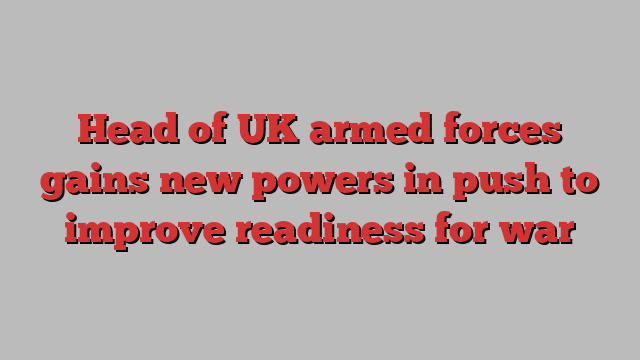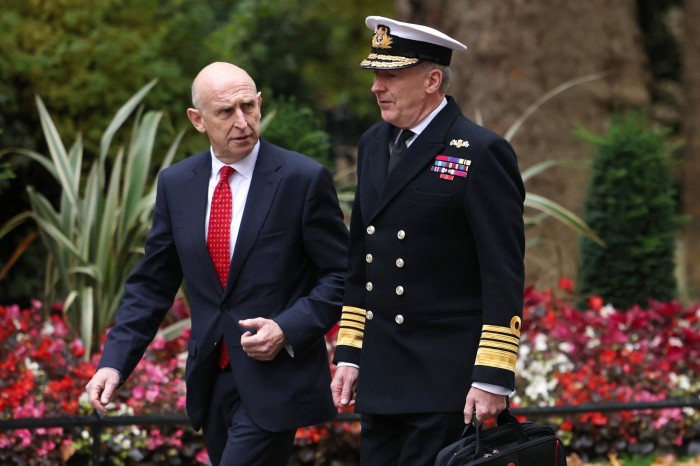
Unlock the Editor’s Digest for free
Roula Khalaf, Editor of the FT, selects her favourite stories in this weekly newsletter.
The head of the UK’s armed forces will gain fresh powers as the government launches a new military strategy headquarters in the coming weeks to improve Britain’s readiness for war.
Defence secretary John Healey is putting into motion the most radical structural shake-up of the Ministry of Defence in 50 years, as he warns of the growing threat of conflict.
The reforms aim to streamline processes, cut waste and enable faster delivery within the department, as well as to ensure clearer accountability and boost the use of data and technological innovation.
Healey will place the command of the army, navy, air force and strategic command under the chief of the defence staff, who is head of the UK armed forces, for the first time.
Previously the four-star officers in charge of the individual forces reported directly to the defence secretary instead of the chief of the defence staff, a fellow four-star officer.
The chief of the defence staff — currently Admiral Sir Tony Radakin — will become central to investment decisions including personnel, training and support alongside equipment together with the defence secretary and MoD permanent secretary.
They will also set the overall direction of the UK’s armed forces, bolstering integration and breaking down silos, as well as reducing duplication.

The new military strategy HQ is likely to be set up within the MoD’s premises on Whitehall, known as mainbuilding, before the end of this year, in order to be ready to implement the outcome of the government’s strategic defence review that is set to report next spring.
Healey is also launching the recruitment process for a new national armaments director to operate across the department, rather than just one branch, to overhaul procurement and cut waste, following criticism over many years about delays and overspending in MoD equipment programmes.
However, the National Audit Office recently issued rare praise for the MoD over the fast-tracked procurement and distribution of kit to the frontline in Ukraine — successes the ministry hopes to capitalise on.
The new national armaments director will be responsible for ensuring the armed forces are properly equipped to defend Britain. A person with strong links to the defence sector is sought for the role, as they will help shape and deliver a new defence industry strategy to be launched within weeks.
They will also be expected to oversee the resilience of defence supply chains and the readiness of the national arsenal.
Healey admitted this week that the British military had become “hollowed out”, which he told Politico was due to a lack of investment by the last Tory government.
He said the UK armed forces, like those of other allied nations, were “very skilled and ready to conduct military operations”, but warned: “What we’ve not been ready to do is to fight.” He insisted that fighting readiness was crucial to deterring conflict in the first place.
The defence secretary told the FT: “The world is more dangerous, with growing Russian aggression, conflict in the Middle East and increasing global threats.
“These vital reforms will make UK military decision-making faster, keep the country safer and achieve best value for taxpayers. This government will strengthen UK defence to respond to increasing threats.”
Defence executives said it was important to recognise the role that industry could play in helping to ensure Britain was on a war footing.
Given rising geopolitical tensions the UK required a “proper, empowered” armaments director, said one executive. The conflict in Ukraine had shown that procurement of new equipment needed to be faster, said a second executive.
“Ever since the end of the cold war, our procurement has prioritised price. Now, time is the priority — can it move fast enough is the question,” said the second executive.